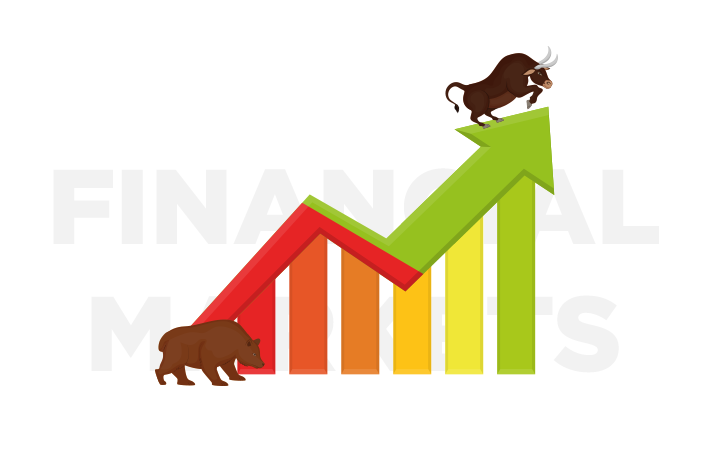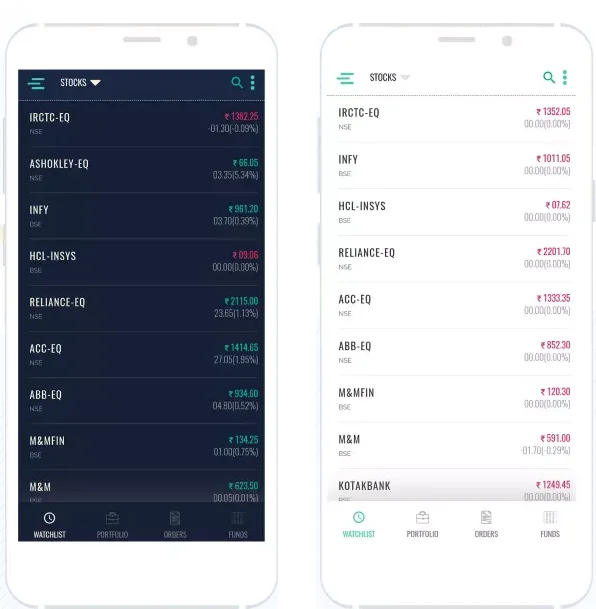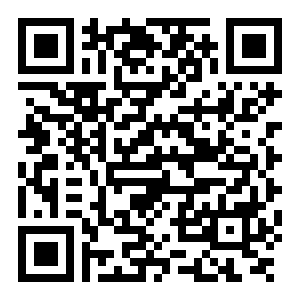What Are Financial Markets?

After understanding markets and types of markets, it is time to move on and understand financial markets, which is essentially our area of interest.
Financial markets are a marketplace where financial securities are bought and sold. Financial securities that change hands in this market can be stocks, bonds, currencies, commodities, derivatives of these underlying among others.
Why do we need financial markets?
- An important role that financial markets play is that offer an opportunity to raise capital and provide liquidity to businesses and investors. It provides a platform for those who need capital and those who have it.
- The financial markets allow companies to raise funds depending upon their requirement. They can raise capital in the form of equity or debt of different tenure. Since they will be raising money from the market they can raise it at rates that the market feels are right for them rather than what bankers dictate.
- Financial markets provide a productive way to utilise savings
- Financial markets like currencies and commodities help suppliers and consumers to hedge their position and define their risk.
- Companies can invite investors to be part of their shareholders by raising money in the primary market through an initial public offer (IPO).
- Financial markets help in price discovery and assign a price to the financial asset.
Types of Financial Markets
Stock Markets
For most stocks, markets are synonymous with financial markets. Since stock markets are in the news most individuals associate them with financial markets.
The stock market is where companies come to raise money through individual investors or institutional funds. The Initial Public Offer through which a company raises funds is done in what is called the primary market.
When the shares get listed, the investors can sell them in the stock exchanges. The marketplace where the buying and selling happens is called the secondary market. There are various participants in the secondary market like the retail investor, institution investors like mutual funds, insurance companies, pension funds, foreign investors, and traders who take advantage of short term price movement.
Among the other participants are market makers who provide two-way quotes and liquidity in the market. There are also arbitrageurs who take advantage of a price discrepancy between two markets.
These stakeholders make their buying and selling decisions based on their perception of the market.
Bond Markets
An individual or a company can lend their money to entities that need funds for a limited period of time. This exchange of money takes place through an instrument called bonds and the platform where it does is called the Bond Market.
A bond is a kind of agreement that binds the lender and the borrower. The agreement contains the details of the tenure and interest rate. These bonds can be asset-backed, that is can be secured against an asset, or are unsecured. All bonds trading in the Indian bond market has to be rated by a Credit Rating Agency.
Bonds are issued by companies, municipalities, state, and central governments to meet their financial needs. Retail investors, mutual funds, insurance companies, foreign institutional investors, corporate with excess liquidity, and pension funds invest in these bonds.
Commodities Markets
The exchange where commodities or natural products are traded is called a Commodities Market.
Commodities are broadly classified as agriculture commodities, metal commodities, and energies.
Agriculture commodities that are traded on these exchanges are cotton, wheat, rice, soybeans, corn, sugar among others. These are also called soft commodities.
Metals that are traded in the exchanges are iron, steel, aluminum, zinc, nickel, tin, lead, gold, silver, and others. These are normally termed as hard commodities. A big market for energies exists where coal, oil, and gas are traded.
Most commodities are traded in the derivative form rather than in the spot. This is because commodity exchanges were set to lock in the risk of producers and consumers. Derivatives like futures and options derive their value from the spot market of these commodities and move in tandem with it.
Currency Market
Along with shares, bonds, and commodities, there is an active market for currencies, which is much bigger than all of them. The currency or the foreign exchange (Forex) market is where the currency is traded in pairs like the Rupee Dollar or the Euro Dollar and so on. The forex market handles more than $5 trillion in daily transactions.
The market is used by countries, companies, producers, sellers, speculators, arbitrageurs, and hedgers who want to protect against cross currency risks. Importers and exporters use this market to protect their transactions from a sudden movement in the currency market.
Cryptocurrency Market
Over the last few years, an electronic asset class has attracted attention, especially of the millennials. Cryptocurrencies, as they have been called is one of the fastest growing asset class across the globe. Though many countries have banned it, the exchange has continued to grow.
Decentralised digital assets like Bitcoin and Ethereum, based on blockchain technology are traded in these exchanges. Hundreds of cryptocurrency tokens are traded globally through crypto exchanges. A trader can keep his crypto assets in digital wallets from where they can be exchanged for other crypto assets or in some exchanges into currencies like the Dollar and Euro.
Almost all exchanges in the world are unregulated and central governments are working towards either regulating them or closing them. The fear is that the opaqueness around the transaction has attracted terrorists to park their money. However, the use of these crypto assets is increasing with ATMs being set up in many countries, plus its use is allowed to purchase goods just like any other currency.
Cryptocurrency exchanges will be the ones to watch out for in the near future as they are at a make or breakpoint.
Frequently Asked Questions (FAQs)
What are Financial Markets?
A marketplace where financial securities are bought and sold is called Financial Market. Financial securities or financial assets that change hands in this market can be stocks, bonds, currencies, commodities, derivatives of these underlying among others.
What are the different types of financial markets?
There are various types of financial markets that are bundled either according to their utility or their need. Like the stock market is used by corporates to raise equity capital by harnessing the money of investors, similarly, the bond market is used for raising debt from investors.
Then there is the commodity market which comprises agriculture commodities or soft commodities as they are called. Hard commodities or metal commodities have various commodities listed in them. Currency exchanges or forex exchanges witness the trading of currency pairs and are the most widely traded in the world.
Over the last few years, a new asset class called cryptocurrencies has been introduced. These are unregulated asset which is witnessing the highest growth rate.
Why are financial markets important?
Financial markets play an important role in offering an opportunity to raise capital and providing liquidity to businesses and investors. It provides a platform for those who need capital and those who have it.
The markets allow companies to raise equity or debts for their growth. Financial markets provide a productive way to utilise savings and act as a means of hedging risk and locking profits.
Financial markets also help in price discovery and assign a price to the financial asset.
Who are the participants in a financial market?
The finance market witnesses participation from retail players, institutions like banks, financial institutions, foreign institutional investors, insurance companies, hedge funds, mutual funds, proprietary funds, pension funds among others.


How Would You Rate This Chapter?
Next
Comments (0)